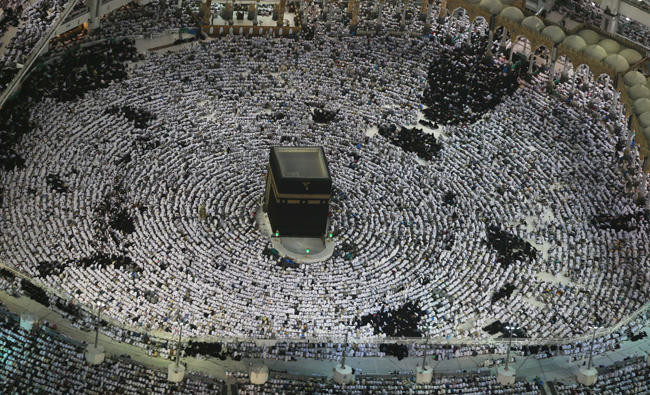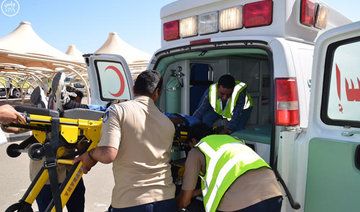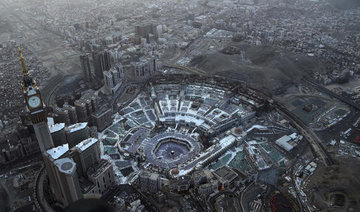RIYADH: More than 3 million worshipers witnessed the final recitation of the Holy Qur’an on the last night of Ramadan at the Grand Mosque in Makkah and the Prophet’s Mosque in Madinah.
In Makkah, Sheikh Abdulrahman Al-Sudais, imam of the Grand Mosque, led more than 2 million worshippers during Isha prayer and asked Allah for forgiveness and release from hell, and to keep Muslim countries from all evils.
Police requested that Umrah performers use public transportation from car parks on the outskirts of the city to get to and from the Grand Mosque to reduce traffic on the streets.
Civil Defense, operating on a special plan to deal with any emergency, took up positions at 70 points throughout the Grand Mosque with all the required equipment they might need. The 50-bed emergency hospital at the Grand Mosque was prepared to receive urgent cases among Umrah performers.
In Madinah, more than 1 million worshipers performed Isha prayer at the Prophet’s Mosque.
The Presidency of the Prophet Mosque Affairs prepared more than 16,000 prayer mats in all yards of the mosque while field guides undertook the organization of prayer lines and guided women to their designated areas. The presidency prepared more than 15,000 zamzam water containers; opened more than 100 gates; operated electric stairs to allow worshipers to go to the roof; installed 250 umbrellas to protect prayers from the heat of the sun; and installed 436 water-spray fans in all yards of the mosque.
The mosque’s security forces spread out through all areas to facilitate entry and exit of worshippers, while Madinah police in the central area surrounding the mosque and affiliated yards kept traffic flowing in an orderly manner.

























